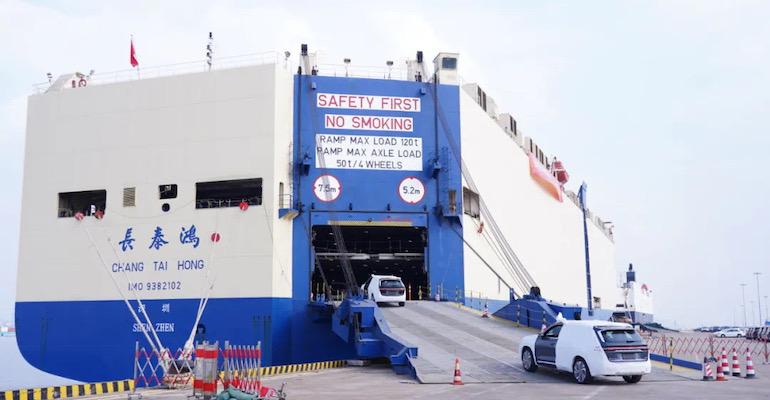In the latest edition of its annual Car Carrier Trade & Transport Report, Clarksons Research said the market is set for continued demand growth with limited increase in the fleet size.
“The car carrier market is experiencing exceptional conditions,” said Steve Gordon, Managing Director of Clarksons Research. “Strong operator earnings and record charter rates (double previous highs at $105,000/day) are being supported by recovering trade volumes (volumes up 8% this year to 20.3 million), port congestion (signs of easing but still up on pre-Covid levels) increasing length of haul (+6% to c.6,900 miles this year), trade in electric vehicles and hybrids (now ~25% of trade volumes) and relatively low fleet growth (just 0.5% fleet projected for 2022).”
The report details the “exceptionally firm” market conditions in the car carrier segment, a product of COVID trade disruption and congestion tightening the market.
Foundational to the recent success of the sector is its limited fleet growth, which grew by just 0.4% in the first 10 months of 2022 and has changed little since 2018. Clarksons pegged 2023 growth at 1.3% for 2023, and a potential; 6.1% in 2024 as vessels ordered in 2021/2022 hit the water.
The car carrier orderbook is currently at a 10-year high of around 16% market capacity, but as fleet growth accelerates from 2024, there are supportive factors from the market.
Listen to a podcast on the macroeconomic outlook for shipping in 2023
Greening of the car carrier fleet has been a driver of vessel orders and will also have an effect on the operating fleet, said Clarksons. Upcoming environmental regulation such as CII will impact the ageing car carrier fleet, incentivising slower vessel speeds and increased scrapping.
“Although some easing from recent exceptional rate levels will flow through if congestion eases further or in the event of a very severe economic slowdown, there remain positive underlying factors for the car carrier charter market including the shift to EV trade, increasing length of haul, fleet renewal requirements and emissions regulations impacting effective market supply,” said Gordon.
Japan retained its crown as the world’s largest car exporter, and the US as the largest importer, but the pandemic left its mark on the market; Japan’s imports were down 20% from 2019 levels and US imports were 15% below 2019 levels.
Copyright © 2024. All rights reserved. Seatrade, a trading name of Informa Markets (UK) Limited.
Add Seatrade Maritime News to your Google News feed.  |

